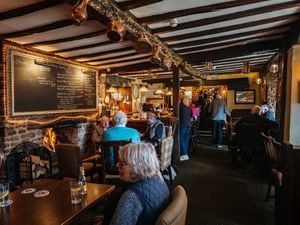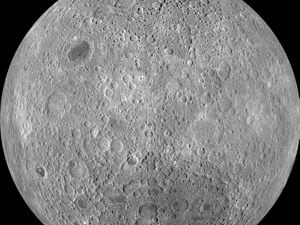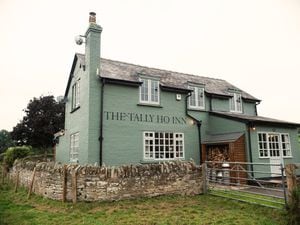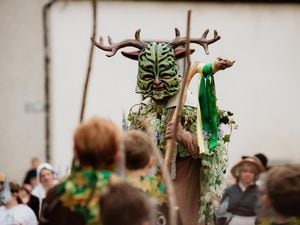Leominster hoard coins return home
A hoard of Roman coins have returned to the place they were discovered and will be on display throughout the summer.
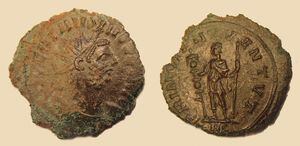
Dubbed the Leominster Hoard, the 518 coins have returned to the hands of Raymond Treasure, the appropriately-named farmer whose land the find was discovered on.
The coins will now be on display, along with information boards, at nearby tourist attraction Stockton Bury Gardens in Kimbolton, for a limited time.
The 2,000-year-old money was found by metal detector enthusiasts Jeremy Daw, from Credenhill, and Martin Fulloway, from Leominster, on land in the Kimbolton area in July 2013.
They were sent for tests at the British Museum which discovered there were three mounds of coins dating from 253AD to 293AD which had been placed in three separate, cloth pouches which were inside a leather satchel. It had been stuffed with leaves to stop the coins from making a noise.
Mr Daw said: "It completes the circle really. I think that this is part of the heritage and part of the history of the area and I think everybody should have access to it and be able to see it and enjoy it."
The pair had been detecting together for around 10 years and, within two hours on that particular field, had discovered the hoard.
Two flat stones had been placed on top of the coins – an indication that they were marked to be recovered.
Mr Fulloway said: "As soon as I saw the top of it, I thought 'I have to stop'. Don't dig anymore. We knew it was important."
The pair contacted finds liaison officer Peter Reavill who was on site within an hour. But they had to wait a few days to fully excavate the site and landowner Mr Treasure parked a tractor on top of the spot – telling friends there was an unexploded bomb in the field when they started to ask questions.
At the time that the coins were buried there was an ongoing civil war and the Roman Empire was being broken up into several smaller empires which explains why there was such a mixed bag of coins.
Initially, they thought they had uncovered a Roman settlement but further searches of the field have not provided any further evidence of that.
Peter Reavill, finds liaison officer, added: "I think this is really special. It doesn't happen very often. These finds have been in the ground for almost 1,800 years and to be here is bringing them home."
The coins will be on display until the autumn.

